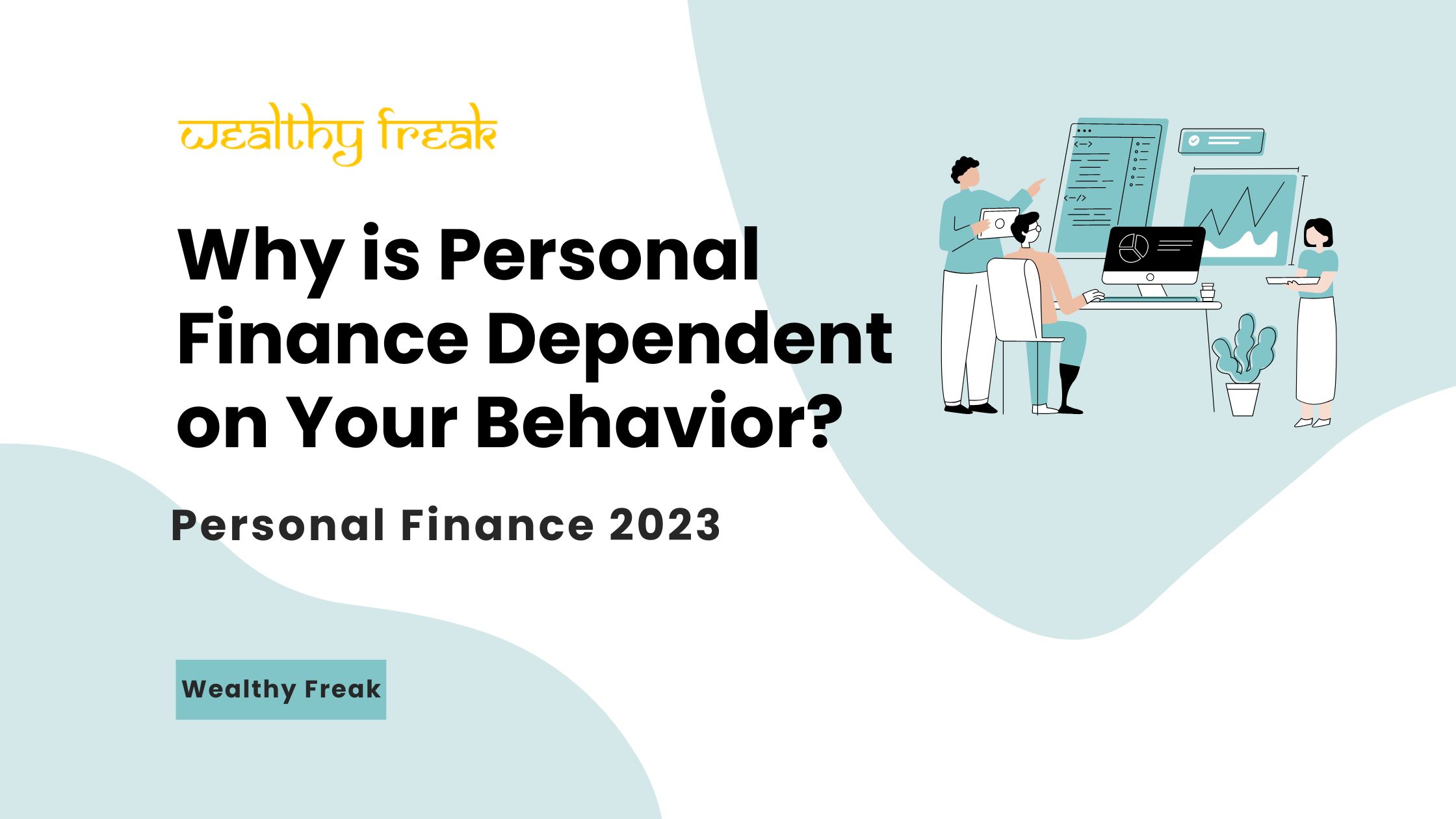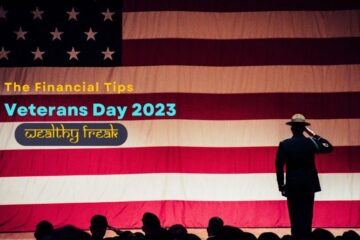Do you think that personal finances are just numbers on a spreadsheet? Then, let me tell you that you are missing something really important in finance. Personal Finance is actually a dynamic interchange between your financial decisions and your behavior. In this blog post, we’ll take a deep dive to learn why is personal finance dependent upon your behavior, the psychology and power of habits, health and wealth connections, money and emotions, and many other important aspects that you should learn before making any decisions.
Personal finance is dependent on your behavior because whatever behavior or decision you make will directly affect your financial health. This is a bitter truth of today’s world: your financial well-being is directly connected to your behavior towards it.
The Psychology Behind Financial Decisions
If we talk about financial decisions, it will become a less interesting yet highly important topic for us. Many psychological factors influence our financial choices throughout our lives. From cognitive biases to emotional responses and spending habits, all these shape our life’s financial landscapes. The fear of missing out (FOMO) behavior might create a desire to make purchases, while the fear of loss prevents us from making huge investments.
The Power of Habits in Financial Well-being


Habits create big differences in our lives, and there is no exception in the world of personal finance. It is really important to understand and make a clear note of how we manage money, how to do it, spending, and monthly savings. Understand that habitual overspending destroys our financial foundations, and positive habits such as automating savings can lead to a more safe and secure financial future. One can take complete control of their financial destiny by shaping their financial habits.
Emotions and Money: A Complex Relationship
We tied our emotions and a sense of security to money. Our financial choices are full of greed and fear. These fears of increasing debt or the emotion of any kind of successful investment make us uncomfortable and stressed most of the time. If we recognize our emotions towards financial decisions, it makes us more powerful to make the best choices that align with our long-term goals.
The Art of Delayed Gratification
In today’s world, we all want instant gratification, irrespective of the future consequences. There is immense power in this personal finance principle. The ability to not accept the immediate rewards in favor of long-term gains is an actual sign of successful money management. It’s better to save for your dream vacation instead of regularly swapping your credit card for everything that comes to you directly.
The Social Influence on Spending Patterns
We are social creatures, and our spending habits often reflect the norms of our communities. The “keeping up with the Joneses” phenomenon exemplifies how we can fall into the trap of overspending to maintain appearances. Recognizing these societal pressures is essential for breaking free from their hold. By prioritizing our unique financial goals over societal expectations, we regain control over our finances.
The Mindful Money Approach
Mindfulness, often associated with meditation and presence, has a profound impact on personal finance. By being present in our financial decisions, we enhance our ability to make informed choices. Mindful spending involves considering the value of purchases relative to our goals, leading to reduced impulsive spending. Integrating mindfulness practices into money management transforms the way we relate to our finances.
Navigating Financial Setbacks and Bouncing Back
Financial setbacks are inevitable, but our behavior in response to them determines our ability to bounce back. Resilience in the face of adversity involves recognizing setbacks as learning opportunities. Whether it’s a job loss or unexpected expenses, our behavior during tough times can pave the way for a stronger financial future. By focusing on solutions rather than dwelling on problems, we can overcome challenges and rebuild financial stability.
How to Effectively Manage Your Personal Finances
Managing personal finances is a skill that combines financial knowledge, disciplined behavior, and strategic planning. To navigate this intricate landscape successfully, consider these actionable tips that empower you to manage your money effectively.
1. Set Financial Goals
The cornerstone of effective money management lies in setting clear and specific financial goals. Take a moment to identify your aspirations, whether it’s paying off lingering debts, building an emergency fund, or embarking on an international adventure. Defining each goal with a specific timeframe and the necessary financial resources provides you with a structured path to success. Your goals become the compass guiding your financial decisions and steering your actions toward tangible outcomes.
2. Create a Budget
A well-structured budget is a fundamental tool in managing your money effectively. Start by cataloging all your sources of income and meticulously categorizing your expenses. Assigning specific allocations to each expense category, based on your income and priorities, creates a clear financial framework. Regularly revisiting and refining your budget ensures it remains aligned with your evolving financial goals and adapts to any shifts in income or expenses.
3. Practice Mindful Spending
Embrace the concept of mindful spending to elevate your financial decisions. Before reaching for your wallet, pause and evaluate the alignment of the purchase with your financial objectives. Distinguish between essential needs and discretionary wants, empowering you to make more informed spending choices. As you navigate your financial landscape, look for opportunities to optimize costs, whether through scouting deals, sidestepping impulse purchases, or comparing prices for maximum value.
4. Save and Invest
Building a solid financial foundation involves a commitment to saving and investing. Cultivate the habit of consistently setting aside a portion of your income for savings, no matter the amount. Automating this process simplifies the task and encourages a consistent approach. Delve into various investment avenues tailored to your financial goals and comfort with risk. Diversifying your investment portfolio minimizes risk exposure while unlocking the potential for substantial returns.
5. Pay off Debt Strategically
Craft a strategic blueprint for managing and eliminating your debts. Start by composing a comprehensive list of your outstanding debts, prioritizing the repayment of high-interest obligations. Explore avenues for consolidating debt, streamlining your payments, and possibly securing lower interest rates. Discipline and unwavering commitment form the bedrock of an effective debt repayment strategy, leading you toward the sweet taste of financial freedom.
6. Continuously Educate Yourself
Commit to continuous financial education as a pillar of your money management journey. Immerse yourself in books, blogs, and articles covering a spectrum of personal finance topics. Engage in workshops, webinars, or seminars to refine your understanding of budgeting, investment strategies, and tax nuances. Stay attuned to evolving financial trends and news that could shape your fiscal decisions, ensuring you remain ahead of the curve.
7. Seek Professional Advice When Needed
Recognize that seeking professional guidance is a sign of financial wisdom. If navigating your finances feels overwhelming, consider enlisting the expertise of a financial advisor. These seasoned professionals can guide you in crafting a comprehensive financial roadmap, offering strategies designed to accomplish your goals. From investment management to complex financial matters, a trusted advisor brings experience to the table, positioning you for informed, empowered decisions.
Mastering personal finance requires the alignment of financial acumen, mindful behavior, and strategic foresight. By implementing these strategies, you pave the way for financial empowerment, crafting a future that resonates with stability, abundance, and peace of mind.
Conclusion
In a world where financial advice often centers on tactics and strategies, it’s crucial to remember that our behavior is the foundation of our financial success. By understanding the psychology behind our choices, cultivating positive habits, managing emotions, practicing delayed gratification, resisting societal pressures, and integrating mindfulness, we empower ourselves to make intentional, informed decisions that shape our financial destinies. These are the top reasons why is personal finance dependent upon your behavior and how to manage it properly.
FAQs
Why does behavior matter in personal finance?
Behavior plays a critical role in personal finance because our financial decisions are often driven by emotions, habits, and societal influences. Understanding and managing behavior allows us to make more informed and rational financial choices aligned with our goals.
How can I change my spending behavior?
Changing spending behavior requires self-awareness and intentionality. Start by tracking your expenses to identify patterns. Then, set specific goals and create a budget that reflects your priorities.
What is the impact of social influences on personal finance?
Social influences can significantly impact our spending patterns. The “keeping up with the Joneses” mentality can lead to overspending to match perceived lifestyles. To counter this, focus on your individual financial goals and resist societal pressures by prioritizing long-term financial well-being over fleeting appearances.
How can I overcome emotional spending?
Overcoming emotional spending requires recognizing triggers and implementing strategies. Before making a purchase, take a pause and evaluate if it’s driven by a genuine need or an emotional response. Engage in stress-reducing activities that don’t involve spending, and consider seeking support from friends, family, or professionals if emotional spending becomes a challenge.




